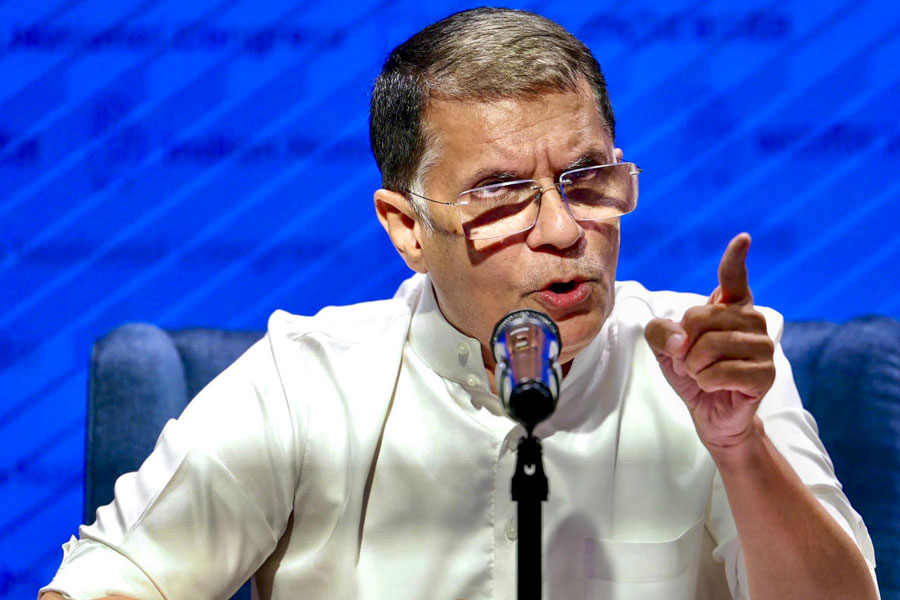The Congress on Wednesday skewered the anti-terror Unlawful Activities (Prevention) Act, alleging that the Narendra Modi government had weaponised it to stifle dissent and deny justice, but in the process starkly bared the irony that the party had itself passed the law and inserted the provisions that it now finds “draconian” and vulnerable to “dangerous misuse”.
Pawan Khera, the chairman of the Congress’s media and publicity department, said in an X post: “Under the Modi govt, law has increasingly been used to stifle dissent and delay justice. Between 2014 and 2022, 8,719 UAPA cases yielded only a 2.55% conviction rate, exposing its misuse to target critics, students, journalists and activists. Pre-trial presumption of guilt, social media and media-driven trials, and recent trend of dismissing habeas corpus petitions by the Supreme Court deepen this crisis of justice.”
Khera mentioned the Bhima Koregaon case, the Delhi riots conspiracy, and the action on web portal NewsClick and other instances of journalists and activists facing arrest under the UAPA.
Khera shared the weblink of a letter from human rights activist Umar Khalid — in jail since 2020, awaiting trial in the Delhi riots conspiracy case — and said: “In reality, most of these are cases of vendetta against those challenging this government. Courts repeatedly highlight this abuse. Delhi HC explicitly stated, ‘Protest cannot be terrorism’, releasing Devangana Kalita, Natasha Narwal & Asif Tanha (in the same case). SC freed journalist (Mohammed) Zubair and climate activist Disha Ravi, criticising arrests as attempts to stifle free speech.
“Safeguarding India’s democracy begins with protecting peaceful dissent and free expression. But the dangerous misuse of laws like UAPA threatens these very freedoms, and is a part of BJP’s broader attack on the Indian Constitution.”
The UAPA was passed by a Congress government in 1967 and gained more teeth in 2004 when the Manmohan Singh government incorporated provisions from the erstwhile Prevention of Terrorism Act, 2002, into it. After the 26/11 Mumbai terror attacks, the UPA government introduced provisions that were criticised for enabling “arbitrary arrests”. This amendment practically made bail an exception, under Section 43D(5).
In 2019, the Congress opposed in the Lok Sabha the Modi government’s amendments to the UAPA that expanded the scope of the Act to include individuals and introduced provisions for designating individuals as “terrorists”. However, the Congress supported the amendments in the Rajya Sabha, ostensibly to promote the party’s image of being strong against terrorism. This angered even its allies.
After the death of Stan Swamy — a Christian priest and tribal rights activist arrested in the Bhima Koregaon case — in judicial custody in 2021, Congress leader, and later MP, Sasikanth Senthil wrote an obituary titled “Martyr of the Marginalised” in party mouthpiece Congress Sandesh in which he called it an “institutional killing”. Ironically, the Congress was in power with Uddhav Thackeray’s Shiv Sena in Maharashtra at the time when Fr Stan had to move court for being allowed a sipper, which he needed to drink water as he had Parkinson’s disease.
The party had, however, disagreed with Thackeray’s decision to hand over the Bhima Koregaon case to the NIA.
Senthil wrote: “The country has seen many arrests in the recent past under the UAPA or the sedition sections targeted at voices of dissent or to settle political scores. Every arrest has only exposed the philosophy of the current government…. The arrest and the institutional killing of Fr Stan also brought three criticalissues to the commoner’s fragile consciousness.”
He listed these as the plight of tribals, “the viciousness of the current dispensation in trying to achieve its hidden agenda of Hindu Rashtra”, and “the pathetic nature of our criminal justice system”.
After two editors were arrested in Manipur, the Congress officially called the UAPA draconian in a statement in January last year. Khera had then said: “The Modi government’s record on information blockade, suppressing freedom of press and targeting selected journalists by using draconian laws like the UAPA, smacks of brazen authoritarianism.”










